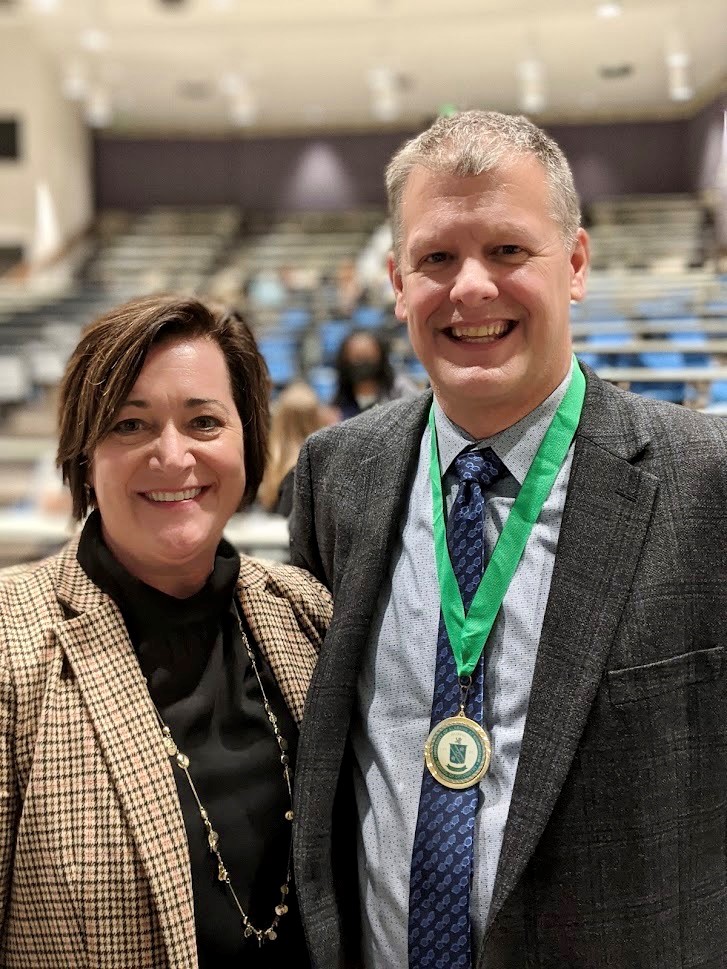by Satina Richardson
Jeffrey Walline, OD, PhD, delivered the 2021 Springer Lecture. This was the 23rd year for this esteemed event, which is supported by the Nathaniel E. Springer Memorial Fund established in 1999 by the Springer family and Donald Springer, OD, in memory of his father. Springer was instrumental in founding the School of Optometry.
Walline has led several pediatric contact lens studies to evaluate the effect of contact lens wear on myopia progression and children's self-perceptions. He had a training grant from the National Eye Institute and is currently the principal investigator of a short-term training grant and study chair of a multicenter clinical trial, both sponsored by the National Eye Institute. He also had the largest industry-sponsored grant ever conducted at The Ohio State University. His work has been presented internationally, and findings from Walline’s studies published globally by non-scientific media.
The associate dean for research at The Ohio State University College of Optometry, Walline’s presentation was titled Myopia Matters.
Takeaways from Walline’s presentation to students were to follow your passion and that myopia control may be a new standard of care. Additionally, a key takeaway was that research evolves and requires unfunded diligence.
“My career – and the careers of most scientists – began in one direction but pivoted to more fruitful, meaningful, and interesting questions to answer,” he said. “Changes are required for a variety of reasons that include personal interests, professional opportunities, and simple luck. Now my career is on a fairly straight path, but one that broadens over time and hopefully continues to answer important clinical questions.”
Walline’s early research focused on what was once a burgeoning area of interest, myopia control. Years ago, he provided continuing education to small uninterested optometrists who attended simply to meet the requirements. In contrast, Walline now lectures to hundreds of optometrists who are eager to learn about the latest knowledge and technology available to treat young myopic patients.
“Optometrists are now practicing evidence-based medicine when it comes to myopia management, and the standard of care is rapidly shifting from alleviation of symptoms to a medical model of reducing the future risks and treating the disease at the core,” he said. “It is a very exciting time to be a part of the advancement in care of our most common patients, those myopic children. We now have options for myopia control and can apply them to our patients with confidence based on scientific discovery.”
To conclude his lecture, Walline presented questions about the myopia control that researcher could soon answer:
- What slows myopia progression with multifocal CL?
- How does multifocal CL affect eye growth?
- Do multifocal CLs change accommodation?
- Is outdoor time, choroid, or ipRGC related to progression?
- Is delaying the onset of myopia possible?
Walline received his Doctor of Optometry degree from the University of California, Berkeley School of Optometry, and his master’s degree in physiological optics and PhD in vision science from The Ohio State University College of Optometry.
